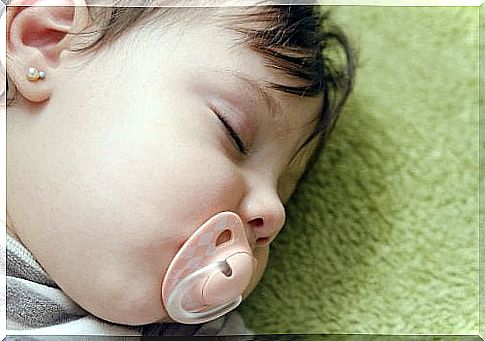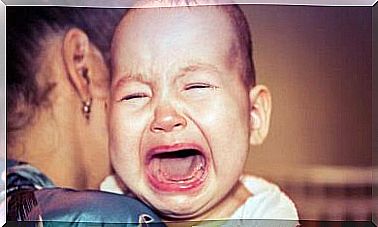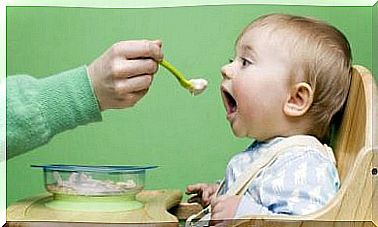Weaning At Night: How And When To Start

When is your child ready for weaning? From 4 to 6 months of age, your baby consumes enough calories during the day to sleep through the night. In addition, some smaller children often sleep for several hours without getting up and eating. Here we will give some tips on how to start weaning at night.
If the mother is less available during the day, the baby may want the breast or bottle at night to get more contact with her. It is also very common for him to wake up at night due to a cold, change in development or toothache.
Therefore, it is important to approach weaning at an early age, however, with the knowledge that your baby needs you to feel safe in the mind.
How to know if the baby is ready for weaning
From the time your baby is 4 to 6 months old , you can gradually start weaning at night. At that age, even if he does not have to eat in the morning, your baby may wake up just because he is used to it. It is not easy to change the routine because children get used to waking up after midnight to eat.

If it is more convenient for the mother to feed her baby during the night, she has no obligation to change it, but it is also important for mothers to take care of their own well-being.
Lack of sleep can lead to various problems in the body. If you are tired and feel that your child is ready for a change in routine, you can get started. In case of doubt, your pediatrician can guide you through the process.
Tips for weaning at night
It does not harm your baby in any way to stop feeding it during the night. On the contrary, it helps you create a routine that helps your baby sleep through the morning.
If you are sure it’s time to start weaning at night, here are some helpful tips:
- Approach the weaning gradually. Keep the baby at the breast for shorter periods or start using less milk in the bottle at night. Extend the space between feedings and caresses on the back to help the baby fall asleep again.
- Make sure your child eats enough during the day. Take scheduled breaks during the day to give the bottle or breastfeed.
- It is not recommended to wean the child during a transitional period. For example, if you start working during the day, it is better to wait a while for your child to adjust to the first new change before you can start with the next change.
- It is important for the father to comfort the child if he cries at night. Because of your smell and the smell of breast milk, the baby wants to eat if it is you who comforts him or her.
- Reduce the feed one step at a time. Assure your child when he wakes up to eat and explain that it’s time to sleep instead. Speak softly and lovingly to your child. Step by step, the child will then begin to understand the new system.
- Give extra feeds at the end of the day. When the child falls asleep full and satisfied, he is less likely to wake up during the night.
What do the experts say?
In his book “Solve Your Child’s Sleep Problems” , pediatrician Richard Ferber indicates that unnecessary night feeding can lead to sleep disorders in children.
He explains that if a baby wakes up several times during the night to eat, he also wakes up for other reasons, such as indigestion or a wet diaper, and there may be excuses for wanting to eat more.

On the other hand, pediatrician William Sears believes that night feeding is a positive way to strengthen the bond between parent and child. Therefore , he recommends that parents do not start the weaning process during the night as long as it does not cause major problems in the family.
In his book “The Baby Sleep Book” he goes through strategies such as sleeping with the child or feeding in the parents’ bed so that the night feeding becomes more comfortable for everyone.
The decision to start the weaning process depends on the parents and how comfortable they feel with it. When you are ready to start, you also need to make sure that your baby is ready.
If he is not completely ready yet, your pediatrician can help you determine when the child is.









